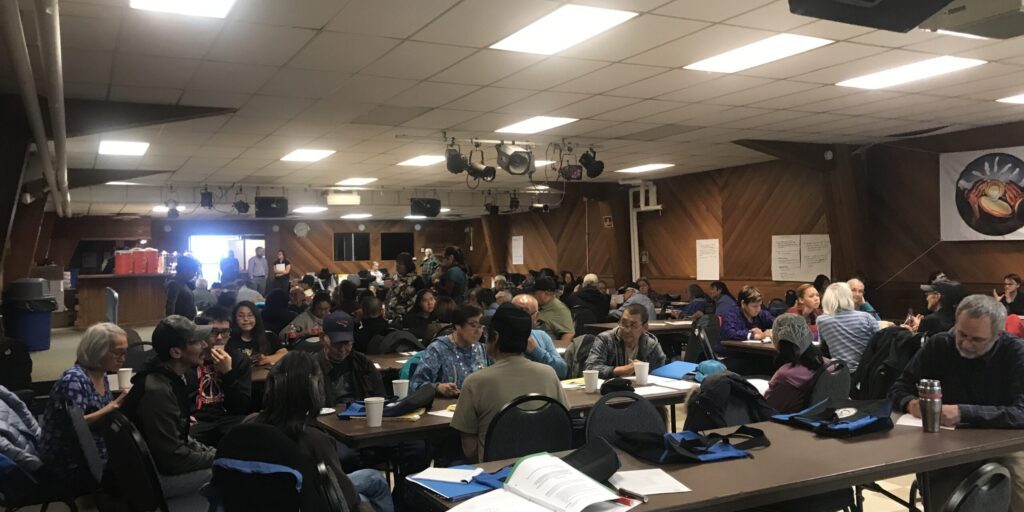Tribes in the Bering Strait region are using traditional values to restructure the tribal justice system in their communities. Kawerak, the regional tribal consortium for the Bering Strait region, hosted a tribal justice summit to foster discussion and spawn ideas.
“Tribal courts are really our courts. They seek to provide restorative justice to our tribal members” said Rick Garcia with the Association of Village Council Presidents (AVCP).
Alice Fitka, the tribal President of St. Michael, recalled memories of tribal justice in her childhood home of Mountain Village. As a little girl after doing something wrong, she was brought before a panel of elders who told her she was loved and in need of help, not punishment. She said that traditional cultural values can gently guide solutions to modern problems, with a focus on reinforcing those values in the communities.
Another elder, Delbert Pungowiyi of Savoonga, reminded the group that native communities have long had their own systems of justice.
“Sovereignty is our God-given gift to all of humanity… What we are doing now is getting back to our own identity. Our own roots. And that we will accomplish, I have faith in that.”
Meghan Sigvanna Topkok, the staff-attorney with Kawerak who organized the summit, said some of the emerging ideas are developing a regional tribal court, a sub-regional model, or even an appellate regional court.
“You could pull judges from different communities if you have a conflict of interest, somebody from another community could step in and be a judge, or review a case if it needs to be appealed,” Topkok said.
Image at top: Tribal representatives from the Bering Strait region gathered in Nome for a summit to discuss tribal justice in their communities.







